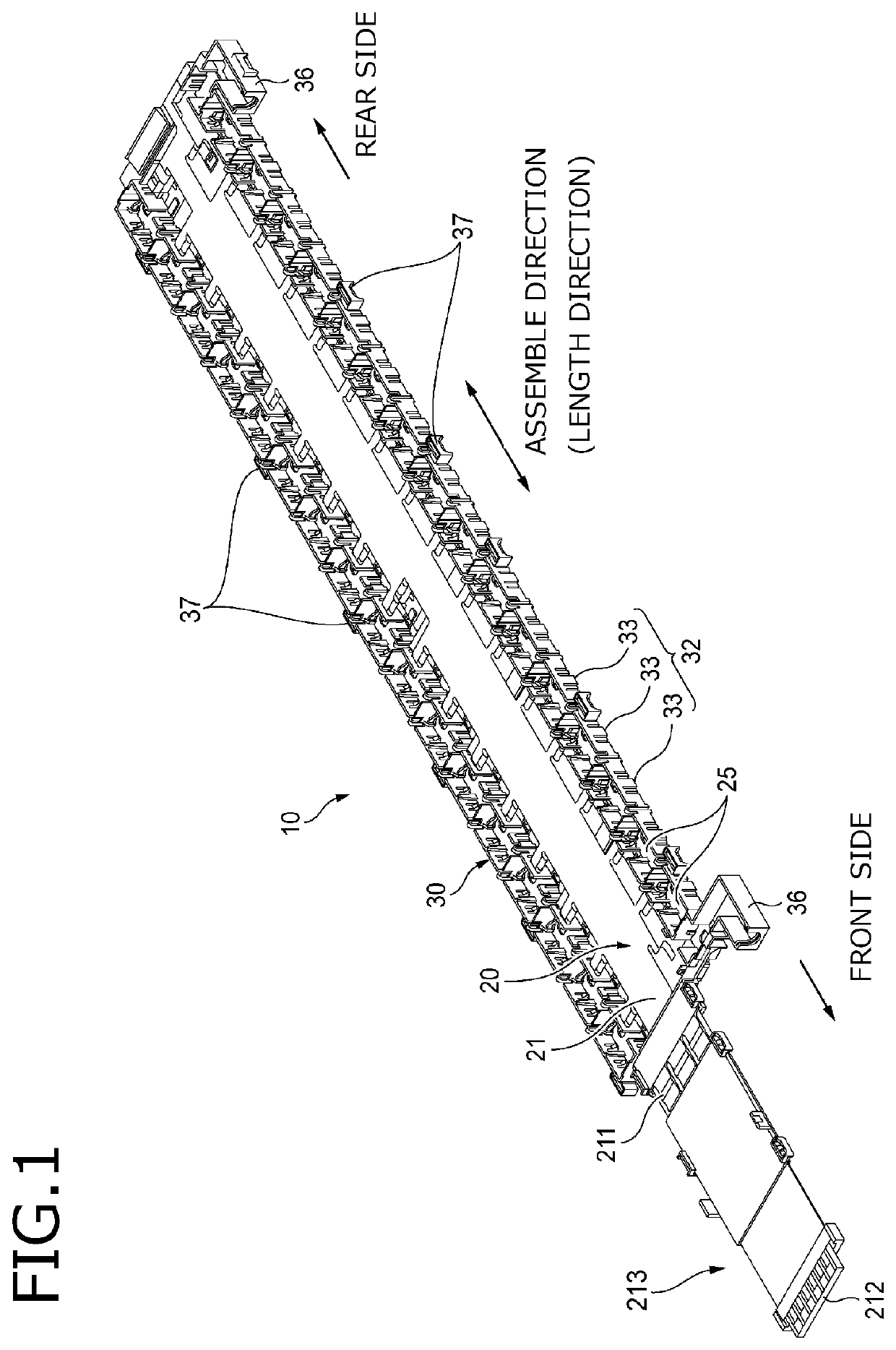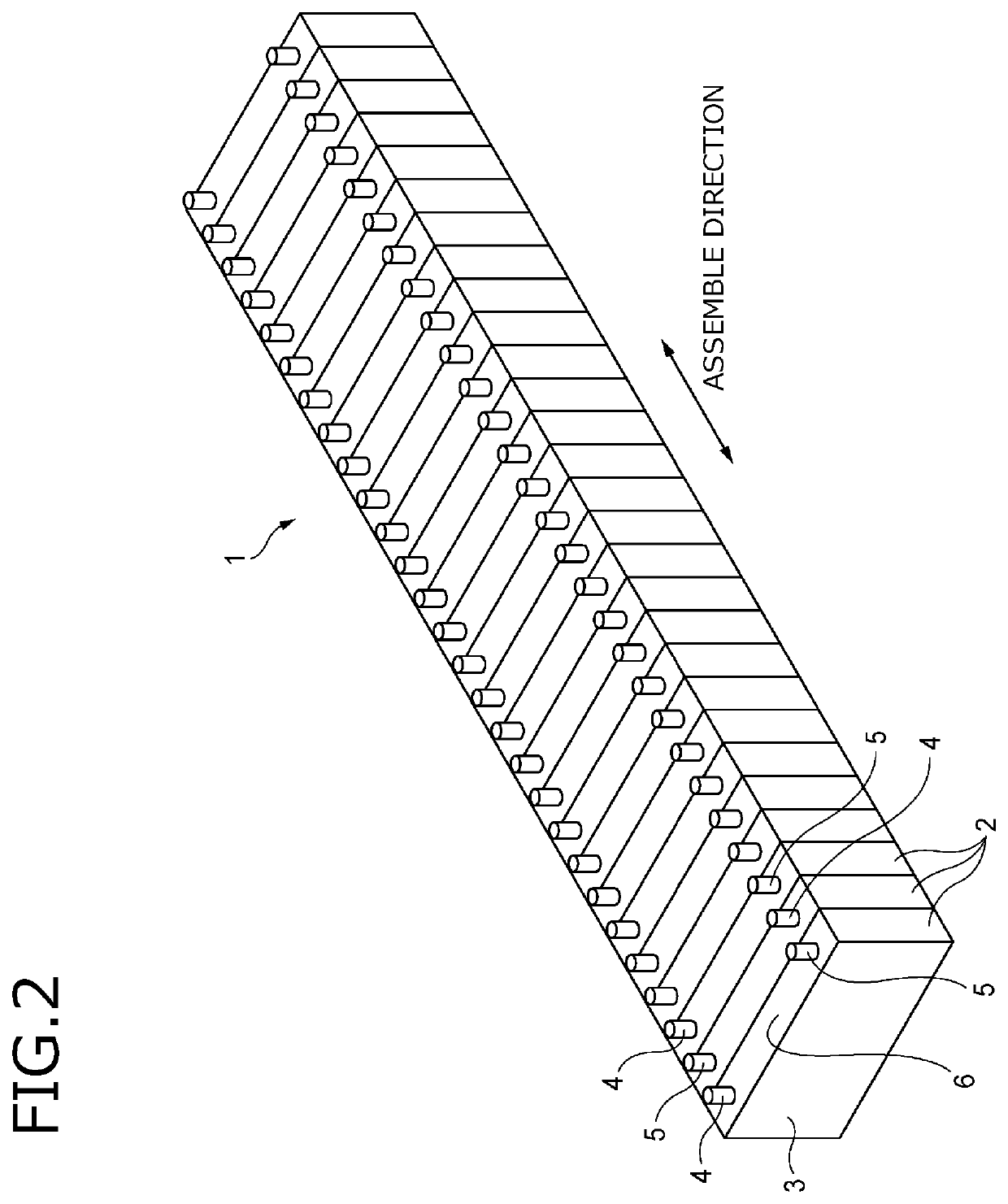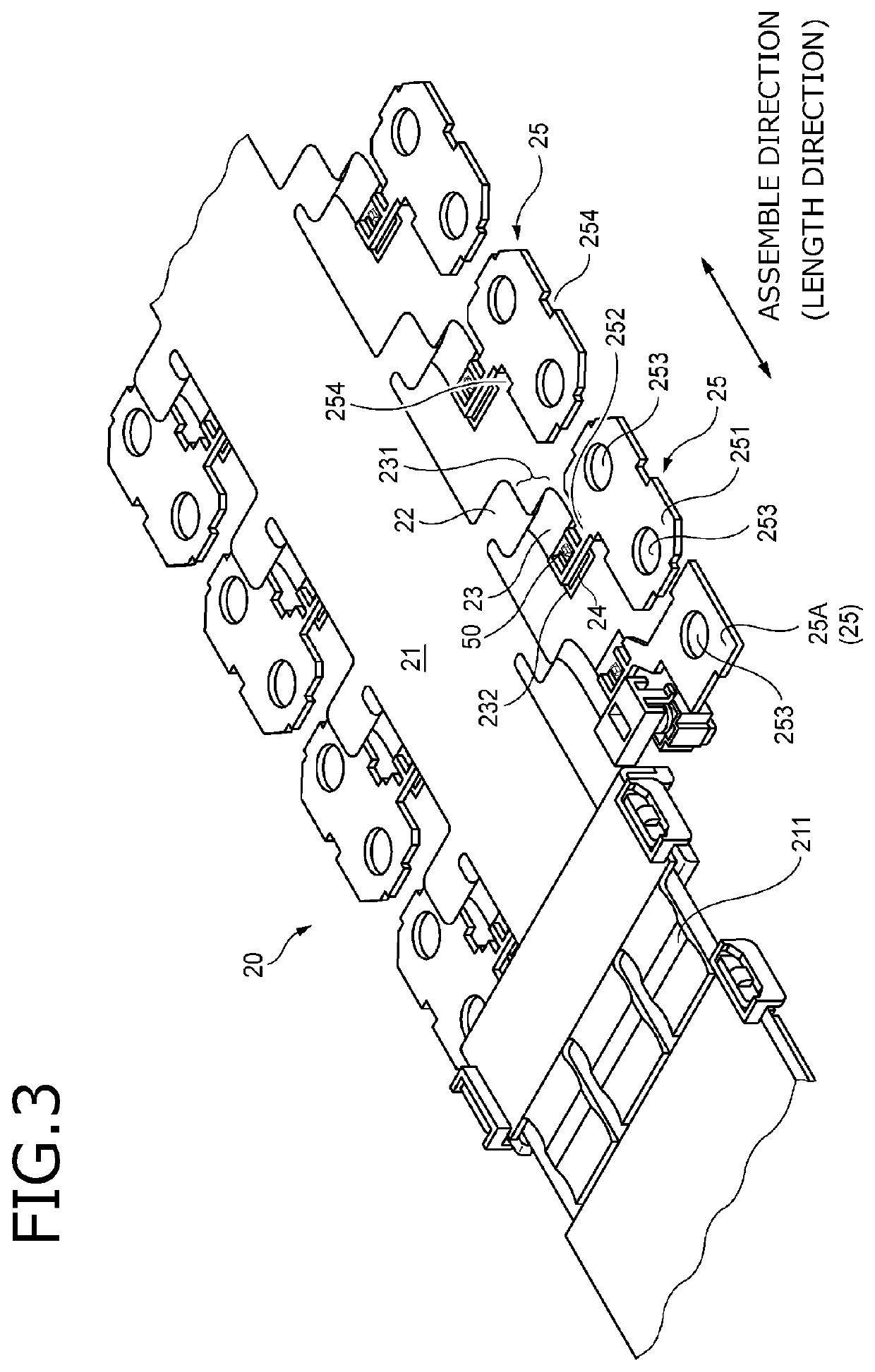Bus bar module
a bus bar module and bus bar technology, applied in secondary cell servicing/maintenance, battery components, cell components, etc., can solve the problems of difficult to improve workability (assembly), difficult to stretch and shrink the bus bar module, etc., to facilitate the punching process and facilitate the flexible board. , the effect of improving the conformability to the deformation of the battery assembly
- Summary
- Abstract
- Description
- Claims
- Application Information
AI Technical Summary
Benefits of technology
Problems solved by technology
Method used
Image
Examples
embodiment
[0055]Hereinafter, referring to the drawings, a bus bar module 10 according to an embodiment of the present invention will be described. The bus bar module 10 according to the present embodiment is used in such a manner as to be assembled to a battery assembly (a battery module where a plurality of single cells are disposed so as to be assembled) as a driving power source mounted on, for example, an electric car and a hybrid car.
(Structure of the Battery Assembly)
[0056]First, a battery assembly 1 to which the bus bar module 10 of the present embodiment is attached will be described. As shown in FIG. 2, the battery assembly 1 is formed by linearly connecting a plurality of single cells 2. The single cells 2 each have a positive electrode 4 and a negative electrode 5 provided so as to project on the top portion of a battery body (body) 3 formed in a rectangular shape. The positive electrode 4 and the negative electrode 5 are disposed away from each other on an electrode surface 6 of t...
PUM
| Property | Measurement | Unit |
|---|---|---|
| flexible | aaaaa | aaaaa |
| stretchable | aaaaa | aaaaa |
| thickness | aaaaa | aaaaa |
Abstract
Description
Claims
Application Information
 Login to View More
Login to View More - R&D
- Intellectual Property
- Life Sciences
- Materials
- Tech Scout
- Unparalleled Data Quality
- Higher Quality Content
- 60% Fewer Hallucinations
Browse by: Latest US Patents, China's latest patents, Technical Efficacy Thesaurus, Application Domain, Technology Topic, Popular Technical Reports.
© 2025 PatSnap. All rights reserved.Legal|Privacy policy|Modern Slavery Act Transparency Statement|Sitemap|About US| Contact US: help@patsnap.com



